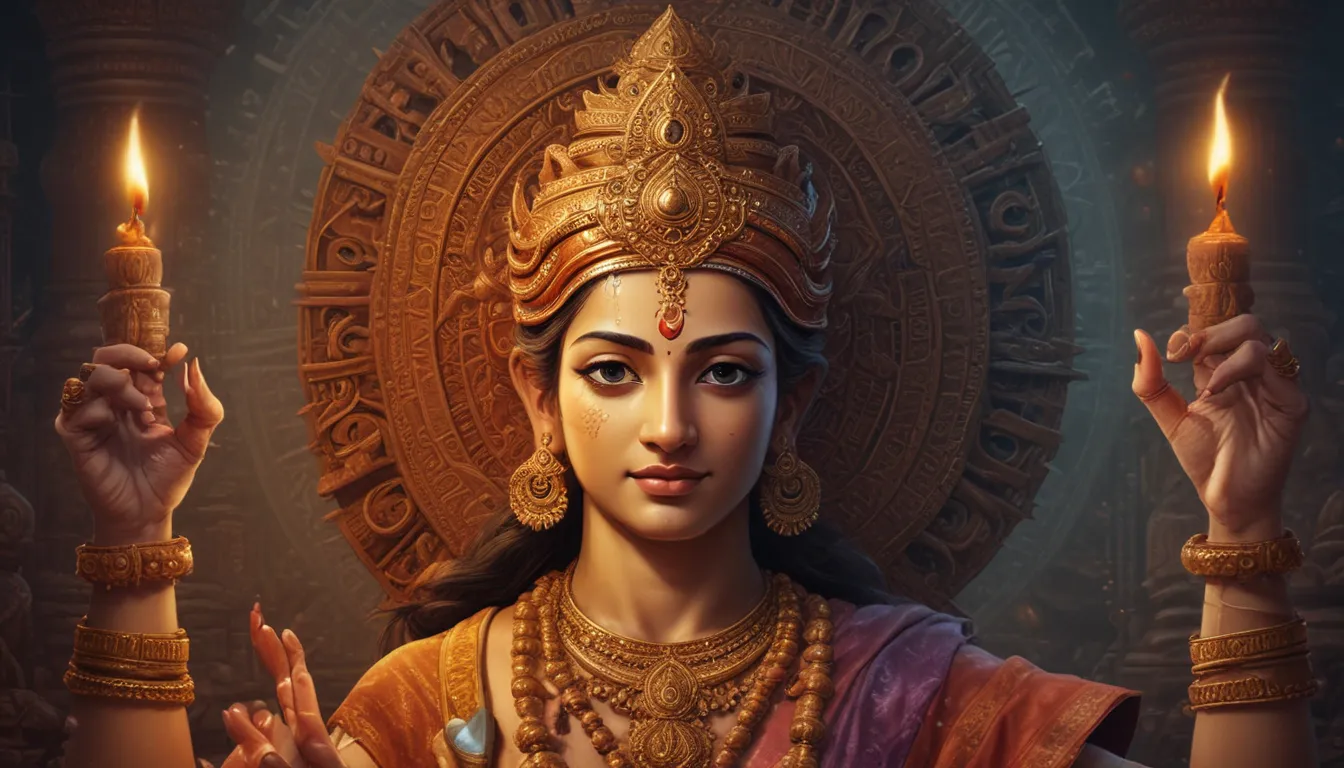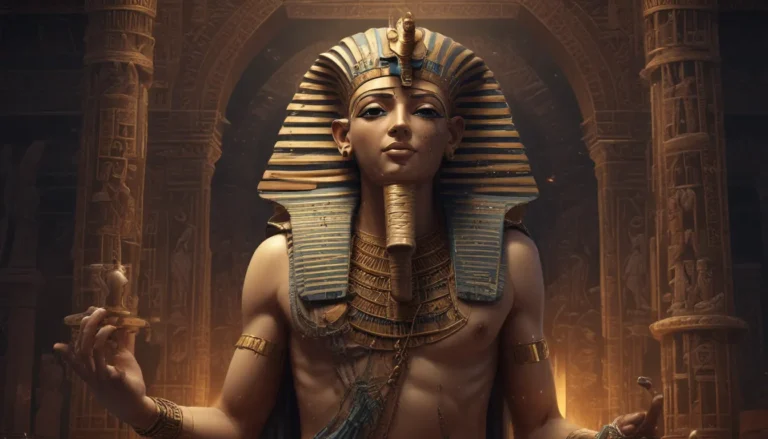The images in our articles may not match the content exactly. They are used to grab your attention, not to show the exact details in the text. The images complement the text but do not replace it.
Welcome to the world of Hinduism, a rich and diverse religious and cultural tradition that has captivated millions around the globe. In this in-depth guide, we will delve into the essential facts about Hinduism, exploring its beliefs, practices, and fascinating history. From the concept of reincarnation to the significance of karma, we will unravel the mysteries of this ancient religion and shed light on its unique customs and traditions.
Hinduism Is Very Different from Other Religions
Hinduism stands apart from other major religions in several key ways. Unlike religions with a single founder or prophet, Hinduism has no such figure. Instead, it encompasses a wide array of religious groups and traditions that have evolved over centuries in the Indian subcontinent. The name “Hindu” itself derives from the mighty Indus River, emphasizing the deep connection between this religion and the land of India.
Hinduism Is a Religion of Practice Rather Than Beliefs
In Hinduism, the focus is not solely on a rigid belief system but on the actions and practices of individuals. While Hindus do acknowledge a universal God known as Brahman, this divine entity manifests in myriad forms that are worshipped by followers. Central to Hindu belief is the concept that Brahman resides in everyone, underscoring the interconnectedness of all living beings.
Hinduism Focuses on Reincarnation
Central to Hindu belief is the doctrine of reincarnation, which posits that the soul is eternal and undergoes multiple lifetimes in different bodies. The cycle of birth, death, and rebirth continues until the soul achieves liberation, known as Moksha. Hindus believe that the soul may be reborn in various forms, be it as a human, an animal, or even a plant, based on the accumulation of karma.
Karma Determines Your Body
Karma, the cosmic law of cause and effect, plays a crucial role in shaping the course of one’s life in Hinduism. According to this belief, the actions and deeds of an individual in one life determine the circumstances of their next incarnation. Positive actions yield positive outcomes, while negative deeds lead to suffering and adversity in future lives. By living a virtuous life and accumulating good karma, Hindus aim to secure a favorable rebirth and progress on the path to Moksha.
Hindus Have a Spiritual Goal
The ultimate goal for Hindus is to attain Moksha, the liberation from the cycle of reincarnation and the realization of the oneness of all existence. This spiritual ideal can be achieved through various paths, including knowledge, meditation, devotion, and righteous conduct. By following these paths, individuals strive to transcend the limitations of the material world and unite with the divine essence of Brahman.
Hindus Have 4 Goals for Human Life
Hinduism outlines four primary goals that guide human existence: Moksha, the release from the cycle of rebirth; Dharma, the righteous conduct and moral duties of an individual; Artha, the pursuit of material wealth through ethical means; and Karma, the accumulation of virtuous actions that lead to spiritual advancement. These goals provide a framework for leading a meaningful and purposeful life in accordance with Hindu teachings.
Hindus Have Many Gods in One
While Hindus believe in the existence of a single supreme reality, Brahman, they also worship a diverse pantheon of gods and goddesses who represent various aspects of the divine. Some of the prominent deities in Hinduism include Vishnu, the preserver; Shiva, the destroyer; Saraswathi, the goddess of wisdom; and Lakshmi, the goddess of wealth. These gods are revered and worshipped by followers in temples, homes, and sacred spaces across the world.
Hindus Worship Daily at Shrines
Daily worship is a central practice in Hinduism, with individuals and families offering prayers and rituals to their chosen deities. Shrines, ranging from elaborate temples to simple household altars, serve as focal points for worship. Hindus engage in acts of devotion, meditation, and offering of food and prayers to express their reverence and seek blessings from the divine.
Hindu Scripture Has 6 Main Works
The sacred texts of Hinduism encompass a diverse range of literary works that form the foundational basis of the religion. The Vedas, the oldest religious texts, contain hymns and rituals that date back thousands of years. The Upanishads explore philosophical concepts such as reincarnation and the nature of the soul. The Ramayana and Mahabharata are epic poems that offer moral and ethical teachings through captivating narratives. The Puranas comprise a collection of myths and legends that recount the lives of gods, saints, and heroes, enriching the tapestry of Hindu belief and practice.
Hinduism Focuses on 3 Main Practices
Hindu religious practices revolve around three key rites and ceremonies that mark significant milestones in an individual’s life. Worship, involving offerings and prayers to deities, is a daily practice for many Hindus. Cremation is a solemn ritual performed upon the death of a loved one, guiding the departed soul towards its next incarnation. The caste system, though controversial, plays a role in organizing society into distinct social groups based on occupation and duty, reflecting ancient traditions and values.
108 is a Holy Number in Hinduism
The number 108 holds special significance in Hinduism, symbolizing the interconnectedness of the cosmos. From the Sun’s distance to its diameter, this sacred number appears in various aspects of Hindu ritual and practice. Prayer beads, commonly used during meditation and prayer, often consist of 108 beads, emphasizing the unity and harmony of all creation.
Hinduism Was Nameless for Centuries
Contrary to popular belief, the term “Hinduism” was not used until relatively recently. The diverse religious practices and beliefs that form the foundation of Hinduism were nameless for centuries, with the designation arising from external sources. It was only during the interaction with ancient Greeks that the people of India were labeled as Hindus, a term that has since been embraced to describe this eclectic tradition.
Animals Are Holy to Hindus
Animals hold a revered status in Hindu culture, with certain species considered sacred and worthy of respect. Cows, elephants, snakes, and peacocks are among the animals revered by Hindus for their symbolic significance and divine attributes. While the consumption of beef is a contentious issue, Hindus generally hold animals in high esteem and strive to live in harmony with the natural world.
Hinduism Is the World’s Third Largest Religion
With nearly a billion adherents worldwide, Hinduism ranks as the third-largest religion globally, following Christianity and Islam. The majority of Hindus reside in India, where the religion has deep roots and influences various facets of daily life. However, Hinduism’s reach extends far beyond India, with millions of followers in neighboring countries and a growing presence in Western nations.
Hinduism Is a Growing Religion
While some religions remain confined to their countries of origin, Hinduism has experienced steady growth and expansion across the globe. The teachings of tolerance, diversity, and spiritual enlightenment have resonated with individuals in Western societies, leading to a growing interest in the practices and beliefs of Hinduism. As a religion that embraces unity and harmony, Hinduism continues to attract followers seeking spiritual fulfillment and inner peace.
In conclusion, Hinduism stands as a vibrant and multifaceted religious tradition that offers profound insights into the nature of existence, the workings of the cosmos, and the pursuit of spiritual enlightenment. By exploring its unique beliefs, practices, and history, we gain a deeper appreciation for the rich tapestry of Hindu thought and the enduring legacy of this ancient faith.
Embrace the Wisdom of Hinduism
As we journey through the realm of Hinduism, we are reminded of the timeless truths and eternal values that underpin this profound tradition. From the principles of karma and reincarnation to the rituals of worship and devotion, Hinduism offers a pathway to self-discovery, enlightenment, and inner peace. Let us continue to explore, learn, and grow in our understanding of this ancient and profound religion, embracing its wisdom and embracing its teachings in our lives.






